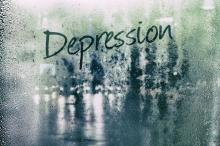Esketamine nasal spray brings fast relief of depressive symptoms
FROM THE AMERICAN JOURNAL OF PSYCHIATRY
Esketamine nasal spray, combined with standard-of-care treatment, quickly improved depression symptoms and suicidal ideation, according to results of a phase 2 study published April 16 in the American Journal of Psychiatry.
In a study of 68 patients randomly assigned to either esketamine or placebo with standard-of-care treatment, patients in the treatment group had a significantly greater improvement in scores on the Montgomery-Åsberg Depression Rating Scale (MADRS) at 4 hours’ and 24 hours’ follow-up after the first dose, reported Carla M. Canuso, MD, and her coauthors.
Esketamine, a more potent sibling of ketamine, is an N-methyl-D-aspartate receptor antagonist that modulates glutamatergic transmission. It is “being developed as an intranasal formulation for treatment-resistant depression and for rapid reduction of symptoms of major depressive disorder, including suicidal ideation, in patients at imminent risk for suicide,” Dr. Canuso and her coauthors reported.
In the study, participants were assigned randomly to twice-weekly treatment with either placebo or 84 mg of intranasal esketamine (or a reduced dose of 56 mg in the event of intolerance). The study included 4 weeks of double-blind treatment followed by 8 weeks of follow-up.
Depressive and suicidal symptoms were evaluated using MADRS criteria 4 hours and 24 hours after the initial dose, on day 25, and all visits during posttreatment follow-up. Severity of suicide risk was evaluated using the Suicide Ideation and Behavior Assessment Tool.
MADRS scores were significantly improved in the esketamine group, compared with the placebo group, both 4 hours and 24 hours after initial dosing, but not at 25 days, Dr. Canuso and her colleagues reported. The esketamine group also had significantly greater improvement on the MADRS suicidal thoughts item 4 hours after first dose (P = .002), but not 24 hours after the first dose (P = .129) or at day 25 (P = .143).







